In 2015, brands who really have a HUMAN side must realize that a million-and-one faux-HUMAN social media voices and brand-vanity ‘experiences’ will never be enough: it’s time for real action.
66% of consumers feel that their relationships with brands are ‘one sided’, with them as the sole contributors and brands as the sole beneficiaries (Edelman, October 2014).
One way that smart brands will take action when it comes to customers’ quest for personal enhancement in 2015? By taking the (ever-more widely adopted) smartphones and wearable devices*, and deploying them to offer more personal, innovative, fun, timely, targeted and ultimately relevant rewards in order to help people achieve their goals.
* Of course, like any trend that caters to such a basic human need, tech-driven innovations aren’t the only solution. Check out some of the low-tech innovations below too.
The Quantified Self has failed to measure up.
Yes, self-tracking has given people millions of data points about their lives. But for many, it's not enough.
Digital self-tracking promised to be a self-improvement revolution.
Now, the results are in, and they tell a more nuanced story. It’s true that the uptake of self-tracking has been impressive. For example, 21% of US adults already owned a wearable device (PWC, October 2014), while an online global study of 24,000 consumers in 24 countries found that 8% owned a wearable fitness monitor, 7% a smartwatch, and 6% a wearable health device. 40%, 41% and 39% respectively plan to buy one in the next five years (Accenture, January 2015).
But despite this, evidence shows that self-tracking alone is not an effective long-term motivator for most users.
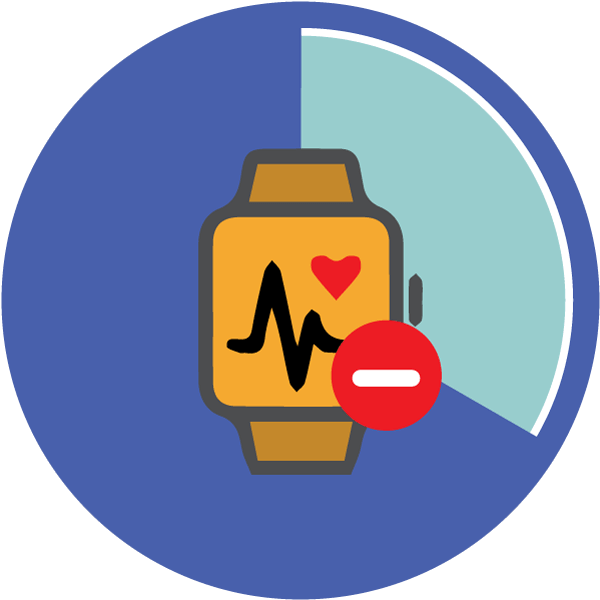
A third of US consumers who have owned an activity tracker stopped using it within six months.
ENDEAVOUR PARTNERS, JULY 2014
Yet the tension between 'who I am' and 'who I would like to be' remains.
And the desire for self-improvement is only getting stronger in more affluent (and self-obsessed?!) societies.
Disappointment with the Quantified Self movement doesn’t change the fact that self-improvement is one of the deepest-rooted imperatives in human nature. What’s more, it’s a fundamental driver of behavior inside the modern consumer arena, where people strive to present an interesting – and aspirational – face to the world.
We know in materially affluent societies, where basic needs are easily met, human motivation quickly shifts away from what I have to who I am. The result is a never-ending quest for personal enhancement that can play out across countless axes: health, formal education, informal skills and knowledge, creativity, ethics, values and many more.
The problem? Other, self-sabotaging impulses and faults that are just as much a part of human nature: lack of motivation, poor time management, loss of focus, and yes, plain old laziness (hey, we’re all guilty ;)
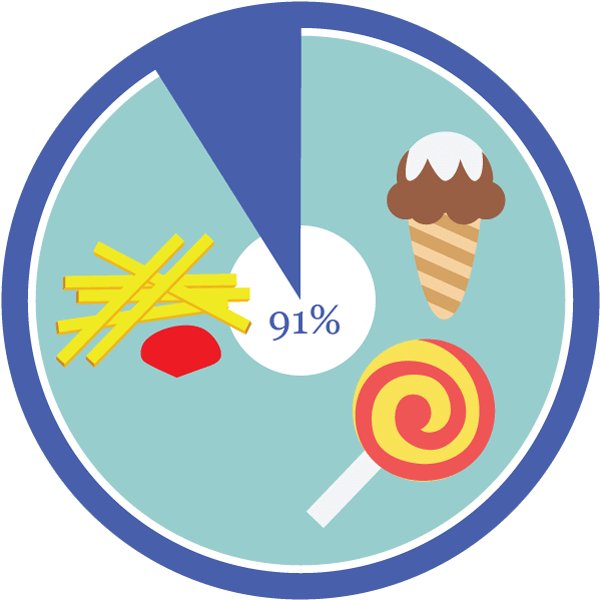
In a survey of US consumers, 89% said taking personal responsibility for health is the best way to stay healthy. Meanwhile, 91% admitted to ‘snacking all day on candy, ice-cream and chips’.
NIELSEN, JANUARY 2015
The solution?
Combine new technologies with a deep understanding of human behavior and resolve this tension with compelling rewards that help customers become the people they want to be.
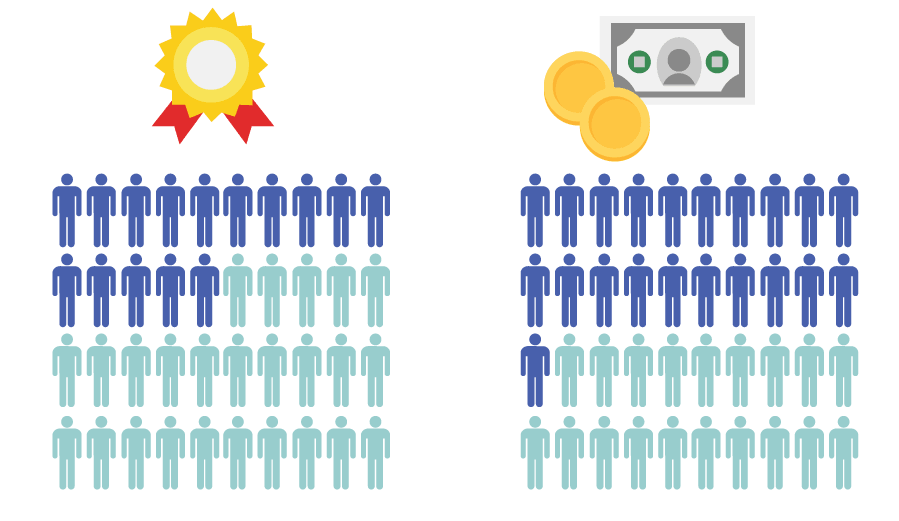
37% of Millennials would be strongly motivated to use a wearable device if it ‘rewarded those who frequently use it with loyalty points’; a figure that rises to 52% if the rewards were monetary.
PWC, OCTOBER 2014

“Brand rewards would work for me because I’d end up telling my friends about the brand and the incentives they were offering, and that would make me feel more obliged to succeed. Any brand that could help me reach my personal goals would become a loved brand for me!”
Pascal Perrochon - Strategic Planner / France
Trendspotter - tw:in

“A financial incentive from a brand I love would make me more motivated to stick to a new habit. I think the most effective incentives would be simple; anything too complex and I might give up. But an effective scheme would really show that the brand cares about their customers.”
Leticia Tanaka - Fashion College Professor / Brazil
CHANGING the SELF
See how these brands and businesses are incentivizing change that improves individual wellbeing.

Oscar Insurance
Insurance company rewards consumers for walking
New York-based Oscar Insurance launched a health policy in January 2015 that provides customers with a free Misfit fitness tracker. The device works with an app to measure the customer’s initial fitness level, then assigns them a personal ‘steps per day’ goal. Customers earn a USD 1 reward for each day that they attain their goal, with the chance to earn a total of up to USD 240 annually in the form of Amazon vouchers.
Tencent and Razer
In-game rewards awarded for real-world exercise
August 2014 saw Chinese online media brand Tencent team up with gaming hardware company Razer in a deal designed to incentivize healthy behavior. The collaboration allows fans of Tencent’s popular Timi Run Everyday game to purchase in-game rewards using exercise data recorded by Razer’s activity-tracking smartband.
Weight Watchers
Campaign offers reduced fees to members who hit weight loss target
In February 2015, weight loss club Weight Watchers ran a 30-second TV ad during the Super Bowl entitled ‘All You Can Eat’. The ad highlighted the difficulties posed by modern living when it comes to maintaining a healthy weight, and launched the ‘Lose 10lbs On Us’ offer, which promises that the first two months of membership fees will be waived for any member who loses at least ten pounds within two months of joining Weight Watchers.
SBT
Vending machine swaps cigarettes for leisure experiences
June 2014 saw Brazilian TV station SBT launch a pop-up anti-smoking campaign. Installed at Mackenzie University in São Paulo, SBT’s ‘Machine of Life’ allowed people to exchange cigarettes for free gifts. Based on each cigarette being equivalent to 11 minutes of longer life, when people placed cigarettes in the machine, they were rewarded with free leisure-related gifts, such as magazines or movie tickets.
CHANGING for SOCIETY
See how these brands are incentivizing consumers who want to be better members of society.
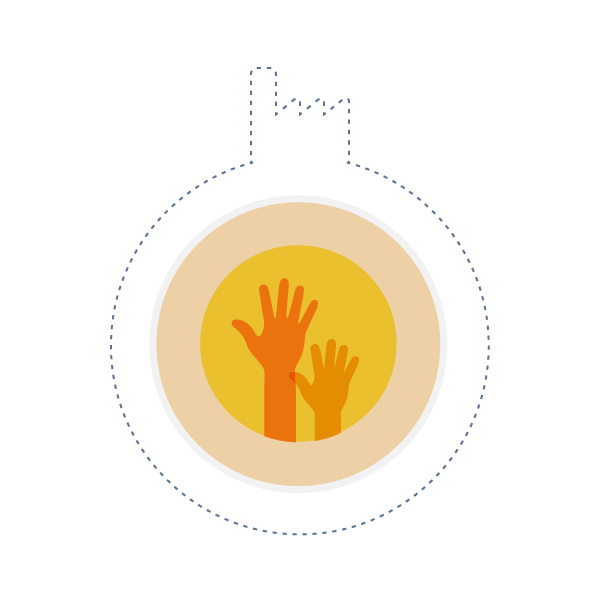
Fitbit and Feeding America
Consumers burn calories to give food
In February 2015, the makers of the activity tracker Fitbit partnered with hunger-relief charity Feeding America to launch the FitforFood campaign. Any user of a Fitbit device can opt in to the program, which will see every calorie they burn go towards a goal of 1 billion calories burned by all participants. If the target is hit, the 1 billion calories will buy 1.5 million meals for US citizens in need. Participants have until 3 March to hit the goal.
Prince Albert Police Service
Canadian police partner with local businesses to reward civic-minded behavior
A low-tech example next: launched in Q4 2014, the Positive Ticketing Program is an initiative from the Prince Albert Police Service in Canada. Designed to reward positive behavior by local youth, patrol members can issue tickets which can be redeemed for prizes such as movie tickets, meals and sports games. The program is sponsored by local businesses like Galaxy Cinemas, Dairy Queen and McDonald’s, with positive behavior including picking up trash, shoveling public sidewalks and deterring crime.
MaximusLife
Online platform for goal tracking syncs with charitable organizations
Funded on crowdfunding site Indiegogo in August 2014, MaximusLife is an online platform that allows users to set goals, track progress via digital timelines, and connect to others for support. The platform allows users to earn rewards when goals are achieved; these can take the form of retail discounts or donations to a specified charity.
CHANGING FOR THE PLANET
See how these brands are incentivizing consumers who want to live more sustainably.

Changers CO2
App rewards users who travel sustainably
Available to download from December 2014, Changers is a free tracking app that rewards users for choosing sustainable transport options. When users take a journey on foot, or by public transport, the app compares the carbon imprint of the journey to that of the same journey made by car. Any emission savings are converted into Recoin units, which can be used to purchase CO2 certificates to make car or plane rides carbon neutral. Users are encouraged to compare their scores with others using a worldwide leader-board.
Seda
Brazilian haircare brand exchanges shampoo bottles for cellphone credit
In October 2014, Unilever-owned Brazilian haircare brand Seda launched an interactive installation allowing consumers to exchange empty shampoo bottles for cellphone credit. Users could bring empty bottles of any brand’s shampoo to a machine in Sao Pãolo’s Republica subway station, which inventoried each item and displayed a corresponding number of cellphone top-up credits. A printed code could then be used to redeem the credits via a variety of mobile operators.
McDonald's
Stockholm citizens pay for burgers using cans
Another low-tech example: in Q3 2014, McDonald’s launched a promotion enabling Stockholm residents to pay for food by recycling cans. The fast food chain unveiled special billboards dispensing trash bags at music festivals and parks, each printed with a price list. In exchange for ten cans, people could get a free hamburger, while Big Macs were worth 40 cans.
MAMUT
Uruguayan shoe brand accepts plastic bottles as payment
For two weeks in February 2015, Uruguayan shoe brand MAMUT accepted plastic bottles as currency when consumers purchased shoes from their summer ‘Native’ line. Each bottle was worth 100 Uruguayan dollars — about USD 4 — and customers could use bottles to finance up to 40% of their purchase. The project was intended to assist with a drive to clean up local beaches, and all bottles collected were sent for recycling.

